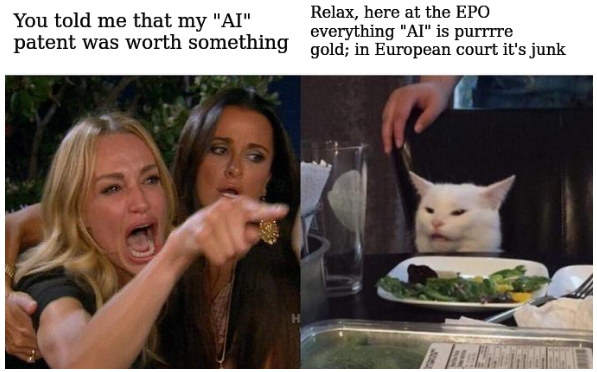

THE LAW does not seem to matter. Caselaw does not matter either. Judges? Look what Battistelli did to them (and António Campinos has shielded Battistelli over it for well more than a year). It's worse than embarrassing; it's a colossal fiasco that European media -- with rare exceptions -- refuses to even talk about.
"It’s worse than embarrassing; it’s a colossal fiasco that European media — with rare exceptions — refuses to even talk about."In the US, the capital of patent trolls, Iancu openly mocks 35 U.S.C. €§ 101 (i.e. the law) and in Europe the EPO grants software patents in defiance of the EPC. Phillips & Leigh, flinging a bunch of self-promotional pieces into Mondaq lately, has just cited the European Patent Convention, but the EPO violates it every day in order to fake 'production'. To quote:
Under European law the test for whether a patent discloses enough is whether it "disclose(s) the invention in a manner sufficiently clear and complete for it to be carried out by a person skilled in the art" [Article 83 European Patent Convention]. This is interpreted as meaning not that the patent application has to provide a blueprint for the invention, that can be slavishly followed with guarantee of success: but that the skilled person with a reasonable degree of experimentation can put it into effect.
"This complete lack of oversight has led to the granting of hundreds of thousands (maybe a quarter million!) invalid patents, i.e. European Patents not compliant w.r.t. EPC.""Changes in EPO Guidelines of Examination," as the lawyers' site put it, have officially come into effect. Who wrote that? A massive proponent of software patents, a litigation giant, Finnegan, Henderson, Farabow, Garrett & Dunner LLP. This firm's Sanam Habib and Maeve O’Flynn are celebrating illegal guidelines by which EPO allows itself to break the law, the EPC, and grant software patent disguised as "hey hi" (AI). To quote the relevant portion:
Last year, to be in line with the ever growing area of artificial intelligence (AI), the Guidelines added a brand new section for AI. This year the EPO has updated the section relating to patentability of AI and machine learning, and mathematical methods to clarify that “term such as ‘support vector machine’, ‘reasoning engine’ or ‘neural network’ may, depending on the context, merely refer to abstract models or algorithms and thus do not, on their own, necessarily imply the use of a technical means. This has to be taken into account when examining whether the claimed subject-matter has a technical character as a whole (Art. 52(1), (2) and (3))”.
Classifying text documents solely in respect of their textual content is not regarded as per se a technical purpose, but a linguistic one. Care needs to be taken in the presentation of the technical purpose of semantic AI systems.